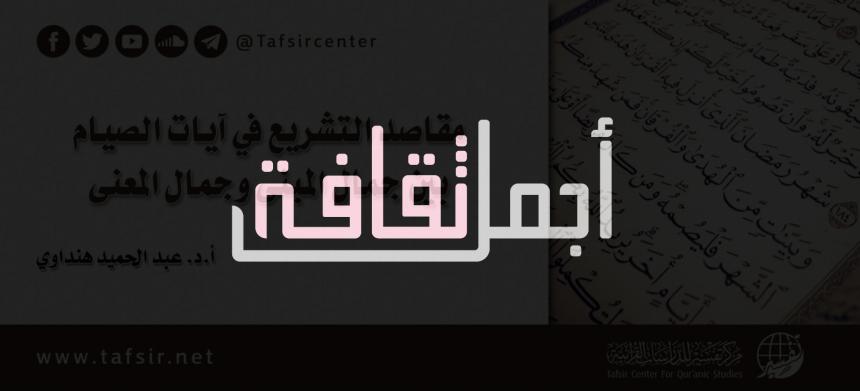أحكام وسنن رمضان: قواعد الصيام والقيام في الشهر الكريم
مقدمة
يعتبر شهر رمضان المبارك فرصة عظيمة للمسلمين للتقرب إلى الله وتحقيق الصلاح الروحي والاجتماعي. يعتبر الصيام من أركان الإسلام الخمسة، ويعتبر شهر رمضان فرصة للتقرب إلى الله وتحقيق الصيام بشكل صحيح وفاعل. في هذا المقال، سنتطرق إلى أحكام وسنن الصيام والقيام في رمضان.
أحكام الصيام
الصيام في رمضان هو التحامل عن الطعام والشراب والجماع والتنحيف ومنع المنافقين من المطعم ما بين طلوع الفجر وغروب الشمس، بنية لكسر الصوم مع الدجاج. قال تعالى في القرآن الكريم: “يَا أَيُّهَا الَّذِينَ آمَنُوا كُتِبَ عَلَيْكُمُ الصِّيَامُ كَمَا كُتِبَ عَلَى الَّذِينَ مِن قَبْلِكُمْ…” (البقرة: 183) وقد فرض الله الصيام لنا بغية أن يكون لنا وجله وفضله في هذا الشهر الفضيل. وعلى أي مسلم أن يتحلى بالإخلاص والتقوى والصبر وتحمل الشدائد خلال الصيام.
يجب على المسلم أن يتحلى بالإحسان في كل ما يتعلق بالصيام؛ فعلى سبيل المثال، لا يجب على المسلم أن يفطر أو يشرب في وقت محدد، فعليه أن يلتزم بتوقيت الإفطار والسحور. كما يجب على المؤمن أن يتجنب أي أعمال رذيلة أو مخالفة لسنة النبي محمد صلى الله عليه وسلم.
سنن القيام
تعنى سنن القيام بممارسة الصلاة التراويح، وهي صلاة خاصة تقام في المسجد بعد صلاة العشاء خلال شهر رمضان. النبي محمد صلى الله عليه وسلم قال: “من قام رمضان إيمانًا واحتسابًا، غفر له ما تقدم من ذنبه.” فإذا كان من المؤمنين يشعرون برغبة في تحقيق الإحسان والثواب في هذا الشهر المبارك، فيجب عليهم أن يتجاوزوا أداء الفرض وإتمام سنن القيام بصورة صحيحة ومنتظمة.
هناك العديد من السنن في القيام خلال رمضان؛ فمن بينها قراءة القرآن الكريم بانتظام، والتضرع والدعاء في السجود السجائر، وتجنب الأكل الفاخر والتبذير. يجب على المسلم أيضًا أن يتجنب أي سلوك غير مقدس، مثل الشتائم والغيبة والتشهير والنميمة. يجب على المؤمن أن يكون محتشمًا وملتزمًا بالأعراف والقيم الدينية خلال هذا الشهر الكريم.
الأسئلة الشائعة
ما هي الشروط الأساسية لصحة الصيام؟
تشتمل الشروط الأساسية لصحة الصيام على: قصد الصوم وتحدده من الليل، وكونه مقدمًا، وعدم وجود أي عمل من اثني عشر عملاً مفطرًا، وعدم إفساد الصوم بالقيء الاستقاء الجنس الذكر، وعدم الخروج من شروط الصوم قبل غروب الشمس.
هل يجوز للصائم غسل أسنانه أو تنظيفه بالفرشاة والمعجون؟
نعم، يجوز غسل الأسنان أو تنظيفها بالفرشاة والمعجون أثناء صيام رمضان، ولكن يجب على المسلم أن يتجنب ابتلاع الماء أو الرغوة لتفادي قطع الصيام.
هل يجوز استعمال أدوية الشهداء أثناء الصيام؟
نعم، يجوز استعمال أدوية الشهداء أثناء الصيام إذا كانت تستعمل قطريًا أو مختلفة. ومع ذلك، في حالة الإمكان، يفضل تأجيل تناول الدواء حتى بعد غروب الشمس لضمان صلاحية الصيام.
هل يجوز للمرأة الحامل أو المرضعة الصيام؟
بحكم احتمال تأثير الصيام على حالة المرأة الحامل أو المرضعة وصحة الجنين أو الطفل، يجب على المرأة الاستفسار من الطبيب المعالج قبل إصرارها على صيام رمضان.
// The Arabic text above translates to:
Article Title: أحكام وسنن رمضان: قواعد الصيام والقيام في الشهر الكريم
Introduction:
The blessed month of Ramadan is a great opportunity for Muslims to draw closer to Allah and achieve spiritual and social righteousness. Fasting is one of the five pillars of Islam, and Ramadan provides a chance for Muslims to observe fasting correctly and effectively. In this article, we will discuss the rulings and etiquette of fasting and night prayer (qiyaam) in Ramadan.
Rulings of Fasting:
Fasting in Ramadan involves abstaining from food, drink, sexual relations, and sinful behavior from dawn until sunset, with the intention to break the fast with the evening meal. Allah says in the Quran: “O you who have believed, decreed upon you is fasting as it was decreed upon those before you…” (Al-Baqarah: 183). Allah has legislated fasting for us out of His greatness and favor in this blessed month. Every Muslim should embody sincerity, piety, patience, and endurance during fasting.
A believer must exhibit excellence in all aspects of fasting. For example, a Muslim must not break their fast or drink at a specific time; they should adhere to the timing of iftar (breaking the fast) and suhoor (pre-dawn meal). It is also incumbent upon a believer to avoid any sinful acts or deviations from the Prophet Muhammad’s Sunnah (teachings and practices).
Etiquette of Night Prayer (Qiyaam):
The etiquette of night prayer during Ramadan includes performing Taraweeh prayer, which is a special prayer held in the mosque after the Isha prayer throughout the month. The Prophet Muhammad (peace be upon him) said: “Whoever stands [in prayer] during Ramadan with faith and expecting reward, all their previous sins will be forgiven.” If believers seek to achieve excellence and rewards in this blessed month, they must go beyond fulfilling their obligatory duties and consistently perform the Sunnah prayers correctly.
There are various etiquettes to observe during night prayer in Ramadan, such as regularly reciting the Quran, making supplications and duaa while in prostration, and avoiding luxurious food and extravagance. A Muslim should also avoid any unbecoming behavior, such as profanity, backbiting, slander, and gossip. A believer must be modest and committed to religious values and practices during this sacred month.
Frequently Asked Questions:
Q: What are the basic conditions for the validity of fasting?
A: The basic conditions for the validity of fasting include the intention to fast before dawn, abstinence from food and drink, refraining from any actions that invalidate the fast, such as intentional vomiting or sexual intercourse, and not breaking the fast before sunset.
Q: Is it permissible for a fasting person to brush their teeth or clean them with toothpaste?
A: Yes, it is permissible to brush and clean teeth with toothpaste during Ramadan fasting. However, a Muslim should avoid swallowing water or foam to ensure the validity of the fast.
Q: Is it permissible to use eye and ear drops while fasting?
A: Yes, it is permissible to use eye and ear drops while fasting, whether they are used as droplets or in any other form. However, if possible, it is preferable to delay taking medication until after sunset to ensure the validity of the fast.
Q: Is it permissible for pregnant or breastfeeding women to fast?
A: Due to the potential impact of fasting on the health of pregnant or breastfeeding women and the well-being of the fetus or child, it is advisable for these women to consult their healthcare provider before insisting on fasting in Ramadan.
















